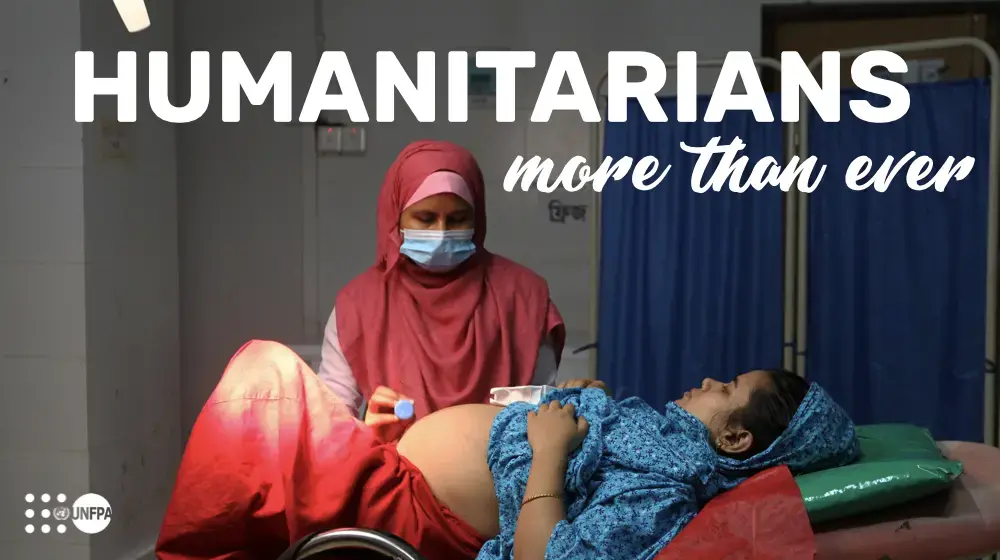Photo story: Humanitarians
Profiles from the frontlines of overlapping complex emergencies
The economic crisis in Sri Lanka is just the latest in a staggering list of complex crises across Asia and the Pacific, from Afghanistan to Tonga. These emergencies have a common thread: marginalized groups face greater barriers to access basic services, especially when it comes to their sexual and reproductive health and rights.
This collection of stories celebrates the humanitarians responding to ensure access to sexual and reproductive health and services for survivors of gender-based violence in emergencies across Asia and the Pacific.
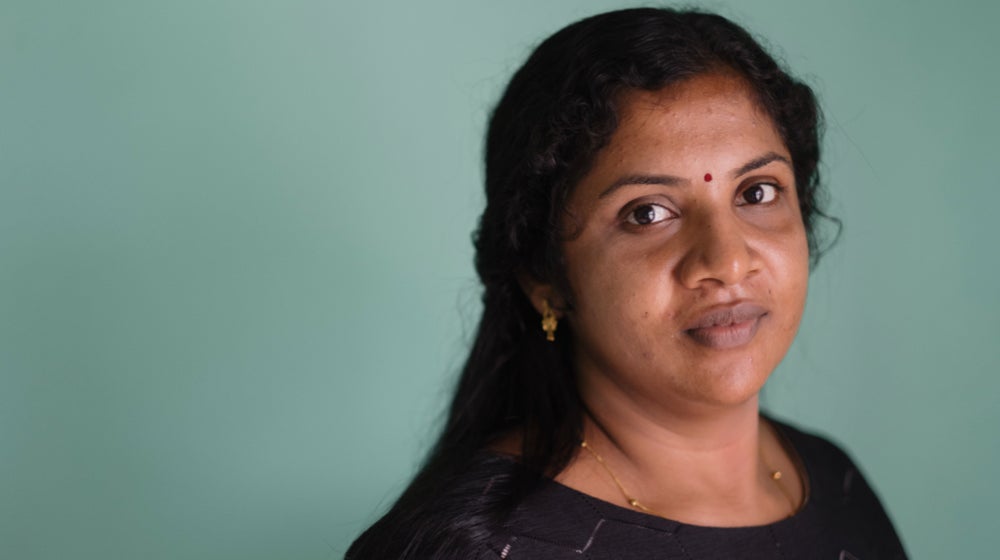
Sri Lanka: “Without money, every family has a problem,” says Francine Princey, pictured in the photo above. “Labourers are unable to get a job and then every family faces difficulties, including more violence.”
Francine is a case manager at a safe house run by the Jaffna Social Action Centre that supports survivors of gender-based violence. She says there has been a spike in calls since the start of the crisis in Sri Lanka. “A woman in need called me with a domestic problem,” she recalls. “When there is domestic violence, women like to stay in a safe house. She asked me for transport, but I told her we do not have enough funds to bring her to the shelter.”
With no government funding this year and a reduced salary for all staff, Francine says the shelter is losing essential services like psychosocial counselling and even the house warden and security. UNFPA has been supporting seven shelters, including Francine’s, since mid-June. The funding is a lifeline for the Jaffna Social Action Center that has 13 women and their children staying at the house at present. LEARN MORE
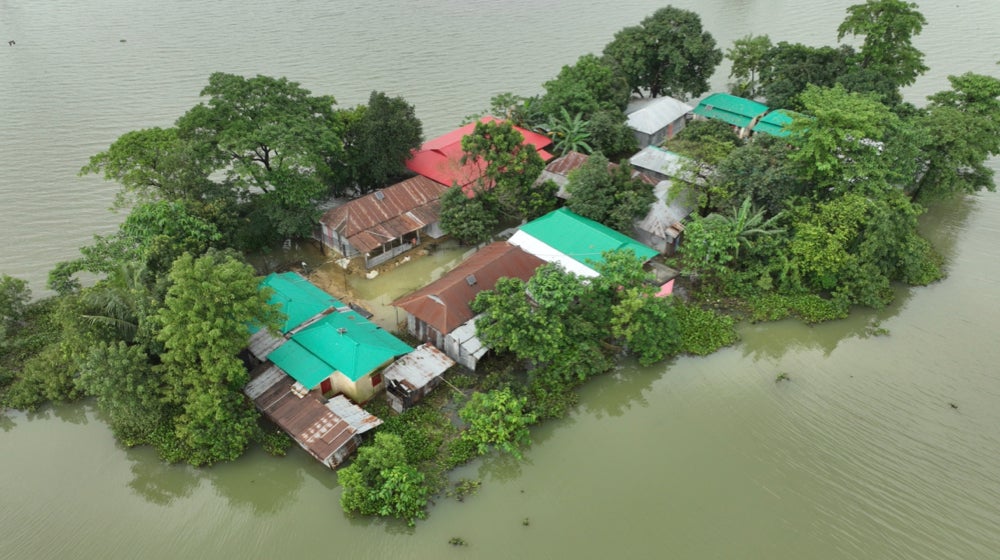
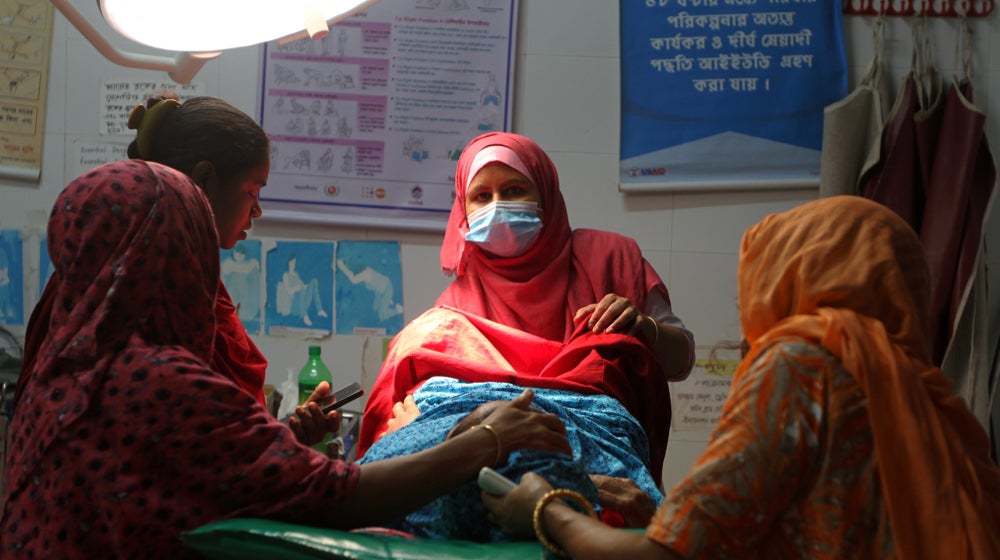
Bangladesh: “I woke up to people shouting outside my window. I realized the water had reached my room,” says Hazera Akther. “It kept rising so fast that I thought the whole room would be under water in two minutes. I panicked, packed my most important certificates and immediately rushed upstairs.”
Hazera is a midwife from Sardar Upazila Health Complex in Sunamganj District that was recently impacted by the flash floods in northeastern Bangladesh. She is also pregnant so her escape from the flood waters in June was even more terrifying.
“There was water everywhere,” she says. “There was pure chaos everywhere. People were rushing all over the place and the roads were covered in water.”
“Despite the chaos, we midwives continued to work as per normal.” Her workplace is walking distance away from her house, but it was necessary to take a boat to reach the hospital because of the flood waters. “If we could not find a boat, we had to walk through the water to the hospital. the water level would reach my chest and I would perform my duties for the rest of the day in wet clothes.”
“I was afraid of snakes in the water and about my legs getting cut on something,” she says. “None of us stayed back at home, because we knew that if there were no midwives or nurses in the hospital, the lives of the pregnant mothers would be at risk.” READ MORE
“Despite the chaos, we midwives continued to work as per normal.”
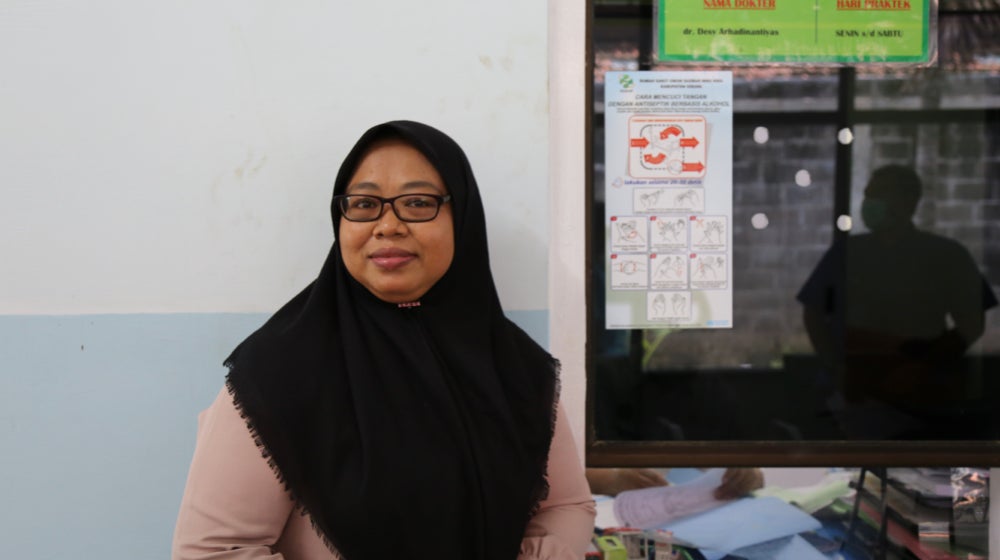
Indonesia: “When there is a disaster,” Oldri says, “we can change the platform into a model that can be adopted by the government to reach the most vulnerable and we can get people direct support with cash and voucher assistance.”
During the pandemic, Oldri Sherli Mukuan and her colleagues at UNFPA Indonesia started a cash assistance program that targets women and young people living with HIV and women partnering with people living with HIV. The economic impact of COVID-19 and the unique vulnerabilities of these population groups created new barriers to access health services. The initiative provides direct cash transfers to help people get to the health centers for life-saving HIV treatment.
For people living with HIV, the extra funds help ensure safety and security. “They feel secure even though they have no money because they lost income and are coping with unemployment during a pandemic,” she says. “But having the cash is really a guarantee for them to access services in crisis situations.”
Oldri recalls how she met a woman and her daughter who were both living with HIV. They attended a workshop and shared how the project helped them. “Having a household where multiple family members are living with HIV, the cash helped them as an economic lifeline during the pandemic. The mum contributes money from the grant to be used for her daughter's education by buying books for her to go to school.” READ MORE
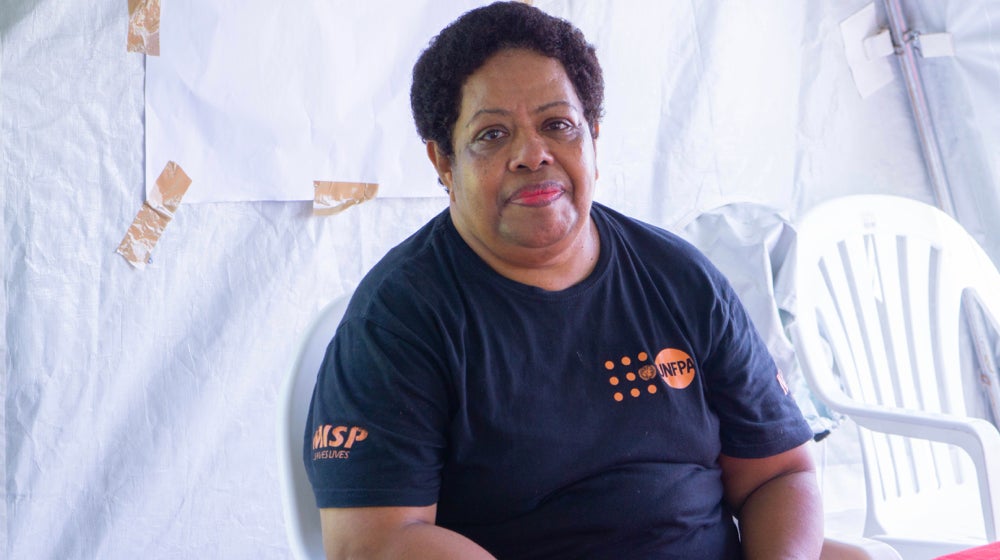
“After a crisis or disaster many women do not want to have more babies. We reach out to the communities to inform women about family planning.”
-Sister Mapoa, Fiji
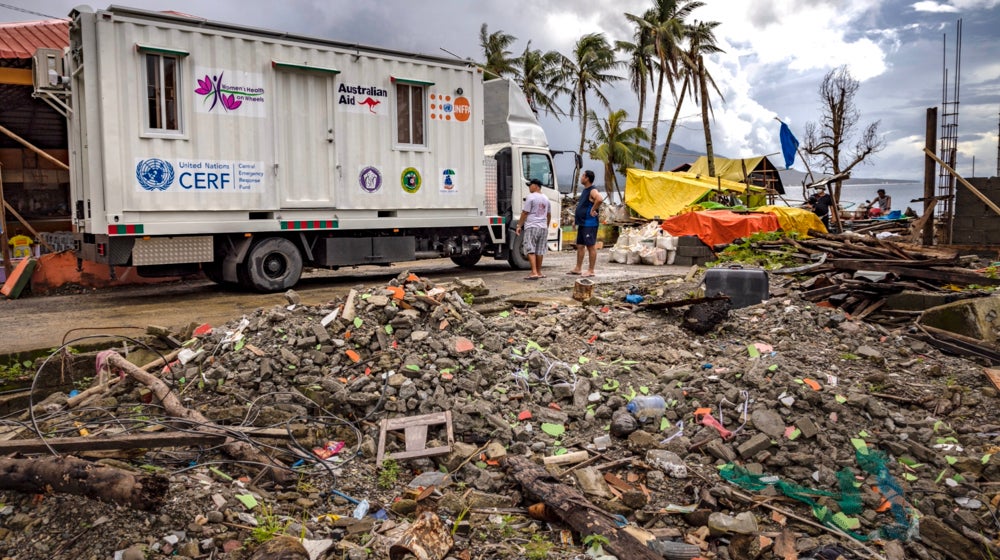
Philippines: Women’s Health on Wheels is a mobile birthing facility that provides maternal and reproductive health care for women when hospitals and rural health units are destroyed because of disasters. It supports basic emergency obstetric and neonatal care to assure safe childbirth in the aftermath of an emergency.
With its ability to be mobile, the truck can reach remote areas and provide rapid response to women in dire need. The mobile clinics were used in the response to Super Typhoon Rai which struck the Philippines in December 2021. Sustained maximum winds of 195 kilometers per hour devastated southern Leyte and health care infrastructure, leaving more than half a million displaced. READ MORE
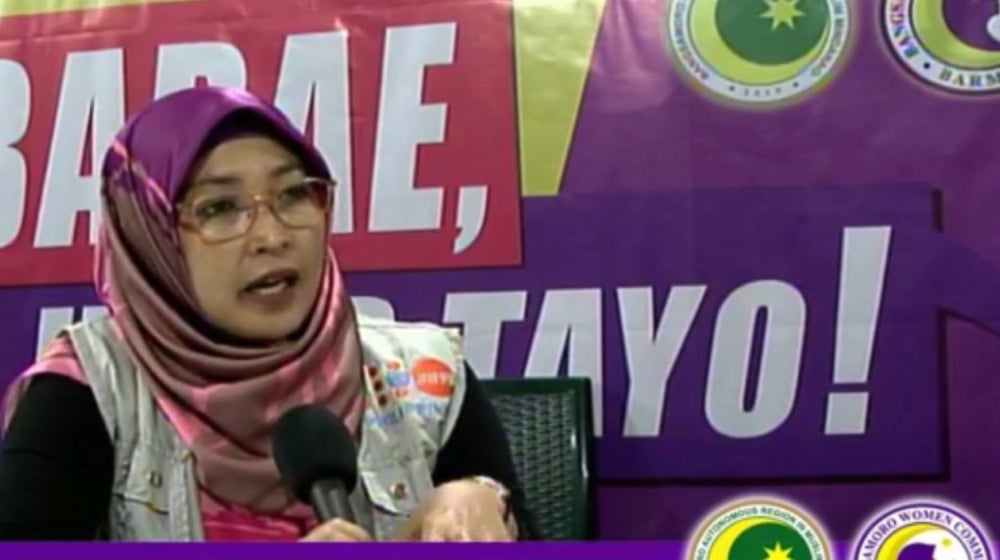
Philippines: “We are working to ensure there is continuity of services, despite armed conflicts, despite disasters and despite COVID-19,” says Sittie Rajabia Monato. She is the Gender-Based Violence Working Group Coordinator with UNFPA in Bangsamoro Autonomous Region in Muslim Mindanao. The region is in the process of transitioning from conflict to recovery with a peace agreement between the Moro Islamic Liberation Front and the Government of the Philippines.
Sittie and her counterparts work to improve access to life-saving services for survivors of gender-based violence. Through coordinated advocacy, they set up the women’s and children’s protection unit in the hospital which now has a dedicated doctor, social worker and police representative.
Sittie says tangible services are a priority in providing support for survivors, especially ones in vulnerable conditions. “Many of our displaced populations are still in shelters or transitional housing.” READ MORE
“We are working to ensure there is continuity of services, despite armed conflicts, despite disasters and despite COVID-19.”
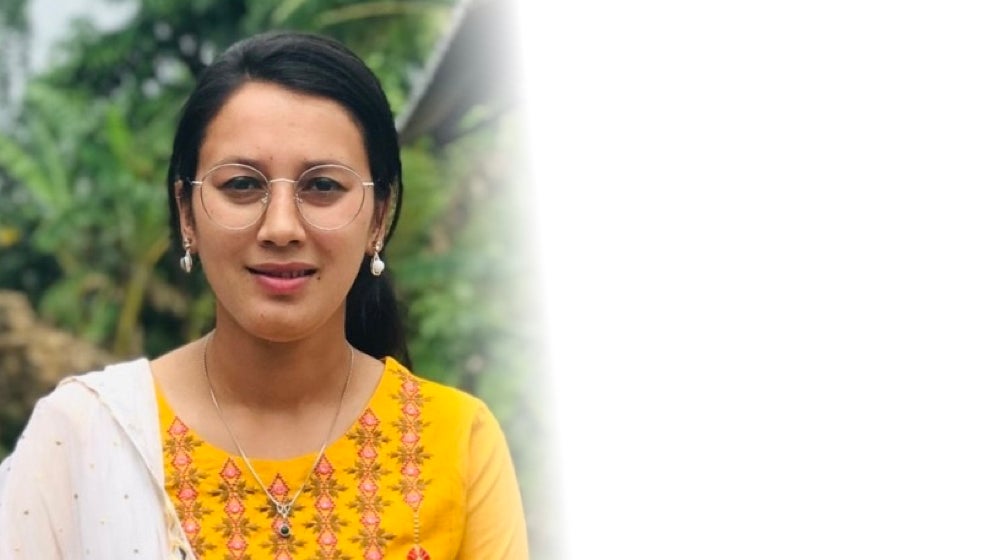
Nepal: “When we were in a difficult situation when houses and lands were swept away by the flood it was emotionally distressing,” says Manisha. She is 24 and lives in the flood-prone Melamchi region where climate change induced disasters are intensifying, such as flash floods. She is trained as a community-based psychosocial worker who engages directly with her peers to check on people’s health and wellbeing, identify potential risks of violence, and work with people to promote positive change in their community.
Psychological first aid training programs are conducted for women leaders in flood affected areas to improve their response skills so they can be mobilized when a disaster occurs. “I am glad to have been part of the training so I can serve others,” she says. “I am also feeling mentally strong and healthy and I am able to earn more in my new role so I can better contribute to support my family.” LEARN MORE
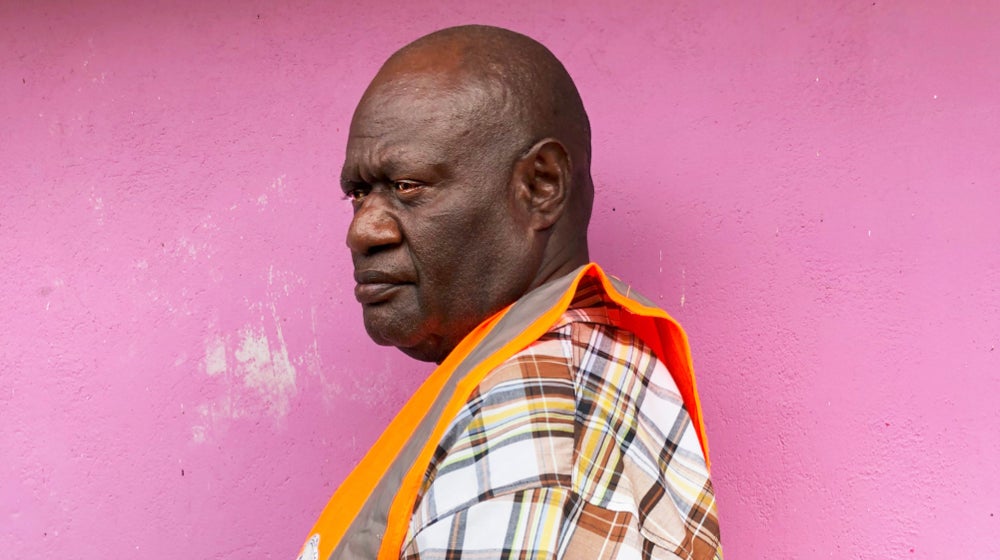
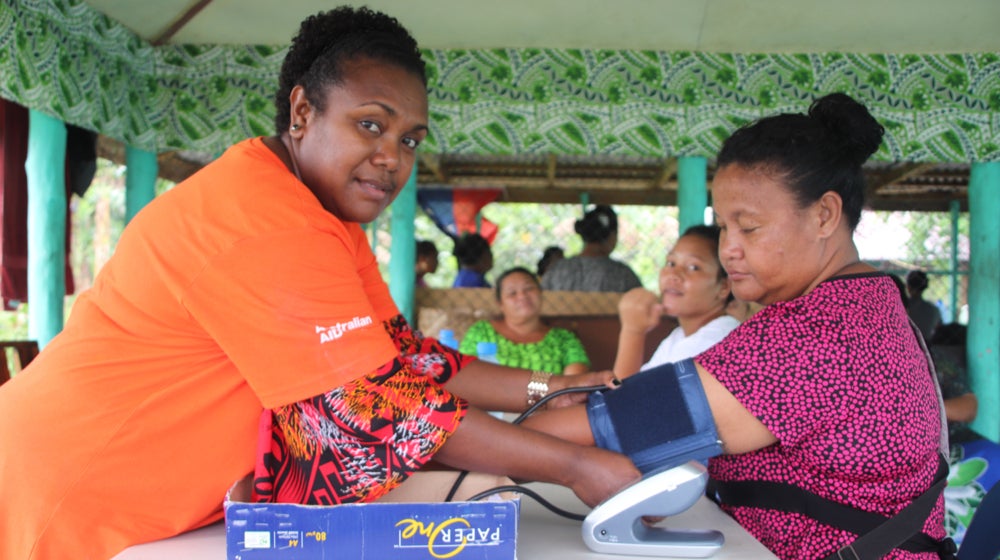
Solomon Islands: “I really love this job as I am able to assist my colleagues by providing sexual and reproductive health services to the most vulnerable people- especially women and girls,” says Nester Sukona Suinao. “With the knowledge and skills I have as a registered nurse, I manage to help and provide sexual and reproductive health to our people in Solomon Islands.”
During the pandemic, UNFPA increased the capacity of Pacific health care providers with online training on gender-based violence. The collaboration with Pacific governments has built a framework for skill-sharing, especially about health sector response to gender-based violence in emergencies.
“Nursing is a great calling despite the set of challenges it comes with,” says Sukona. “When you have the passion for it, you can save lives. Nurses and midwives work for the same goal which is to reduce suffering, deaths, mortality, and morbidity."
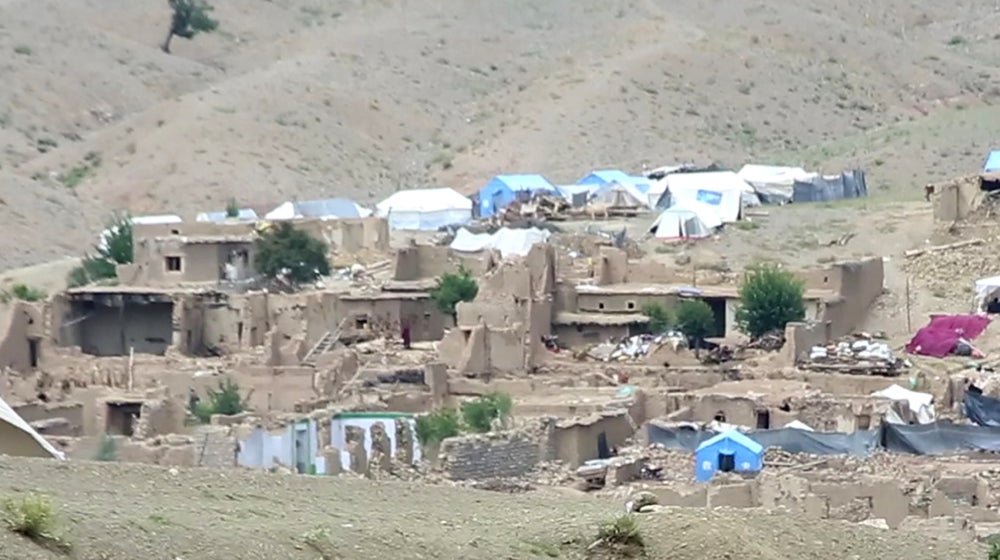
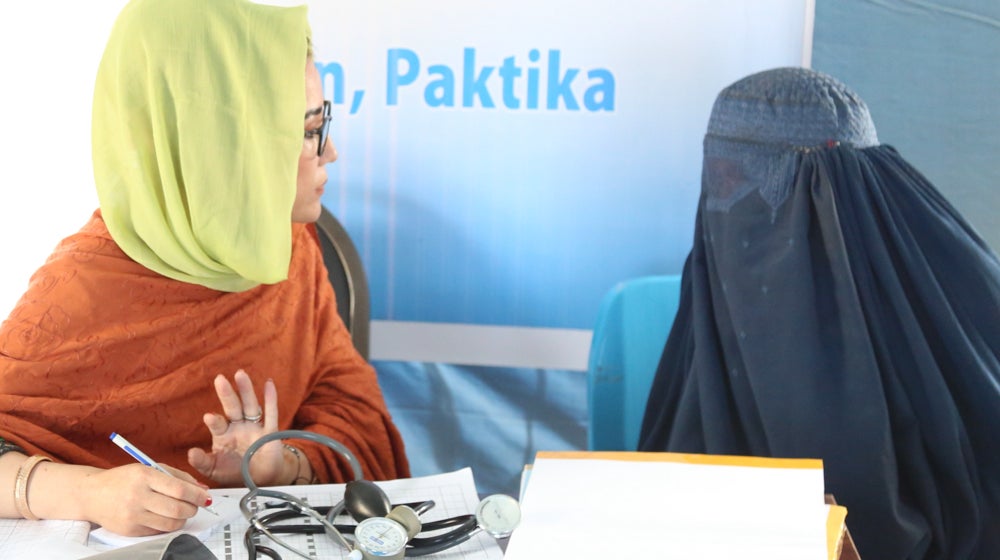
Afghanistan: “There was a woman who was nine months pregnant,” says Minaz Bibi, a midwife in Paktika province. “She was injured and lost family members and relatives in the earthquake. The woman was in a state of shock and fear.”
The woman went into premature labor. It was the first delivery that Minaz assisted without the support of a mentor. She completed her midwifery training in June under the Community Midwifery Education program supported by UNFPA.
“The presence of midwives offering maternal health and psychosocial support services is important in emergencies,” she says. “I experienced this personally. It helps to have midwives to save mothers and babies.” READ MORE
"Midwives offering maternal health and psychosocial support services is important in emergencies. It helps to have midwives to save mothers and babies.”
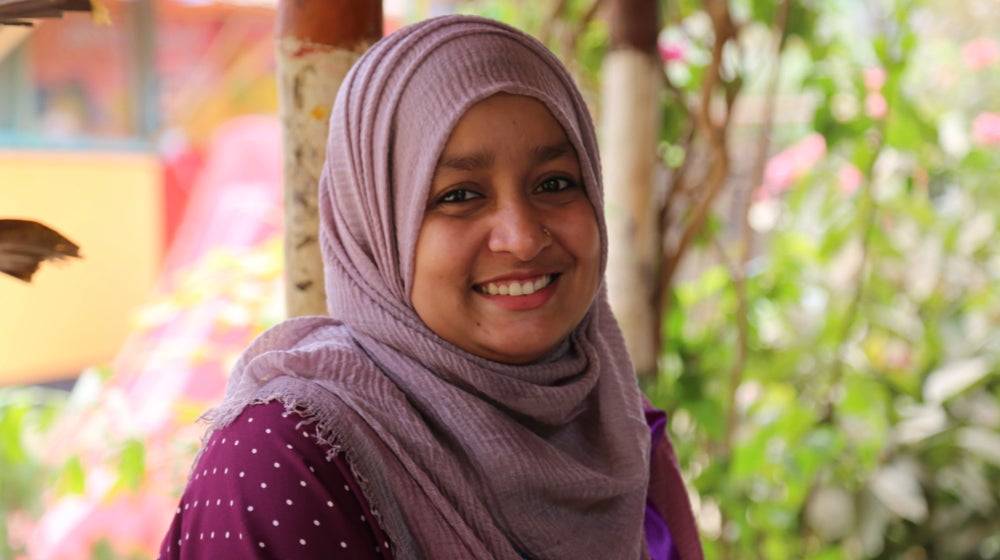
Bangladesh: “UNFPA-supported women friendly spaces offer gender-based violence case management services, psychosocial support activities, clinical management of rape and emergency referral services,” Hasna says. “We distribute dignity kits and reach people with social support activities. It is about making sure quality services are available and accessible within the refugee camps and in the host communities.”
Hasna Akter Sumi is a mental health and psychosocial support specialist with UNFPA in Cox’s Bazar. In partnership with the Government of Bangladesh and humanitarian partners, UNFPA has responded to the needs of both the Rohingya refugees and local host communities.
“In the women friendly spaces, caseworkers provide psychosocial support services integrated gender-based violence case management,” she says. “Support activities enable women and girls to feel a sense of safety, maintain a continuum of family and get community-based support and linked to services to meet their needs.”
Since the influx of Rohingya refugees into Bangladesh in 2017, UNFPA has helped set up a network of 38 women-friendly spaces in the Rohingya camps and surrounding host communities in Cox’s Bazar. LEARN MORE
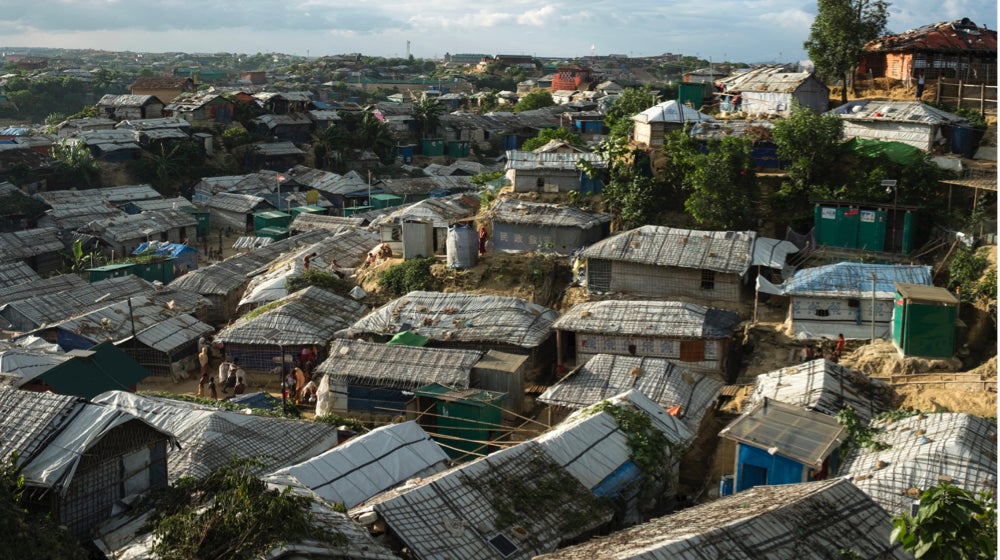
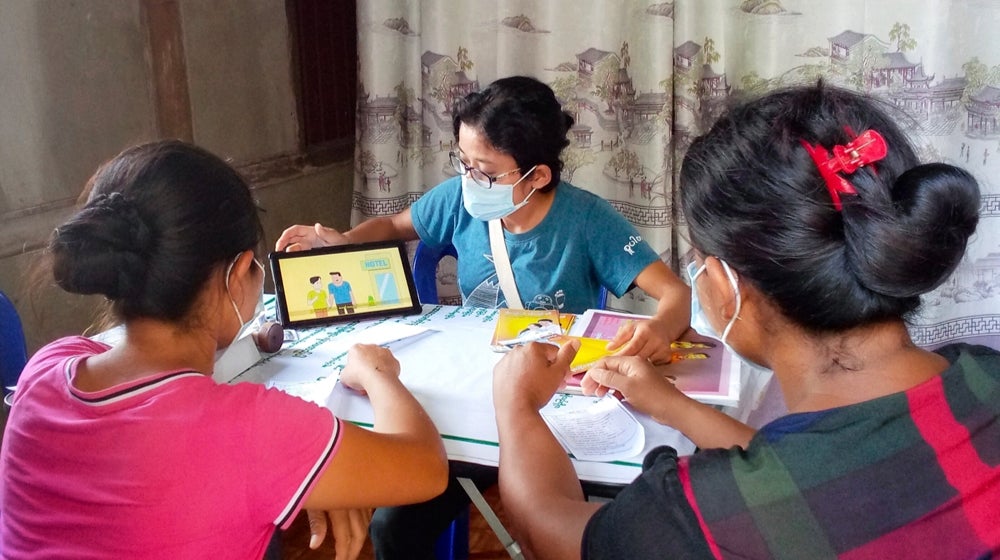
Myanmar: Since the military coup in February 2021, the country has been gripped by an intensifying humanitarian emergency and volatile security crisis. UNFPA empowers humanitarians on the ground like the Myanmar Youth Stars. It is a network that provides information for young peple at high risk of HIV in Myanmar, including young men who have sex with men, transgender people, young people selling sex, people who inject drugs, and people living with HIV. The network includes with more than 1,500 people in 18 townships across Myanmar, advocating for the rights of these key populations on issues related to HIV and sexual and reproductive health. READ MORE
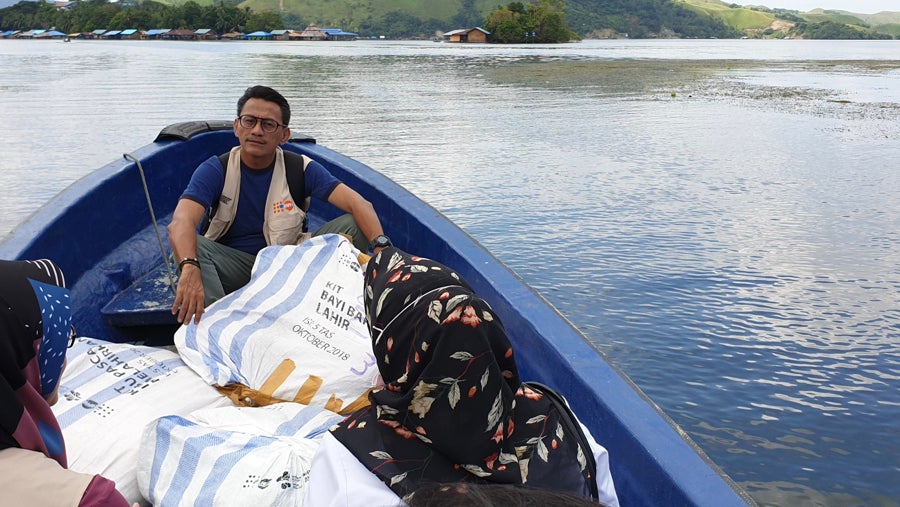
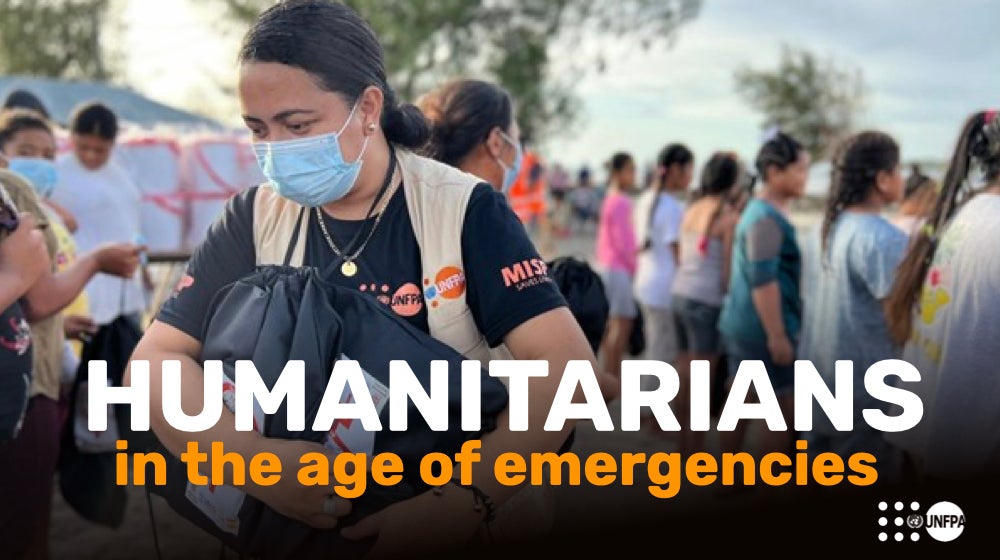
OPINION-EDITORIAL: The Regional Director for the United Nations Population Fund for Asia and the Pacific, Björn Andersson, says humanitarian crises are everyone's business. Harnessing the strengths of all sectors of society will determine how effectively we can prepare and respond to multiple, protracted and sudden onset emergencies. READ MORE
Learn more
Minimum Initial Service Package - The minimum, life-saving sexual and reproductive health needs that humanitarians must address at onset of an emergency
GBV Area of Responsibility brings together non-governmental organisations, UN agencies, academics and others under the shared objective of ensuring life-saving, predictable, accountable and effective GBV prevention, risk mitigation and response in emergencies, both natural disaster and conflict-related humanitarian contexts)
Afghanistan Humanitarian Appeal 2022
Sri Lanka Humanitarian Appeal 2022
Humanitarian Action Overview 2022
United Nations Office for the Coordination of Humanitarian Affairs

